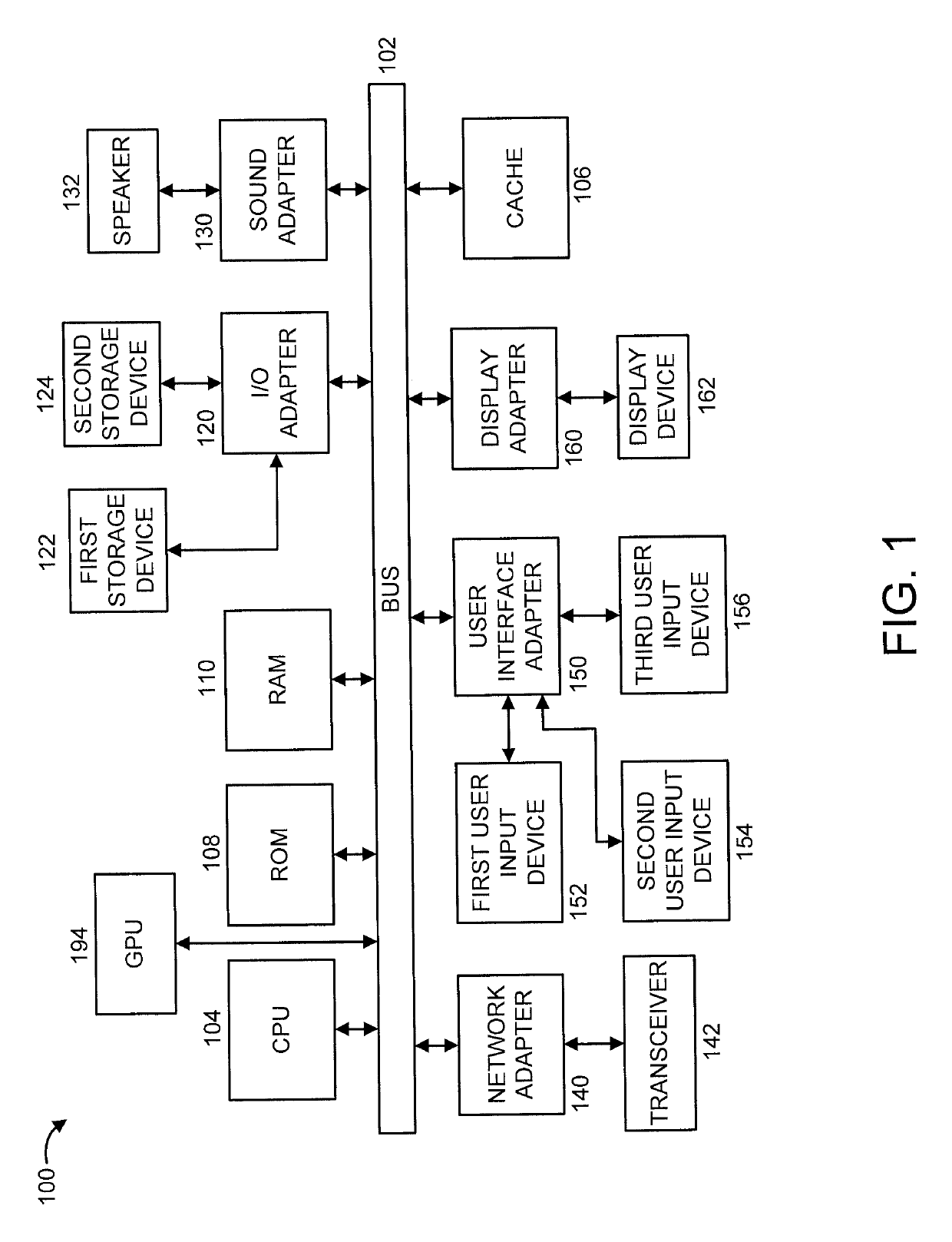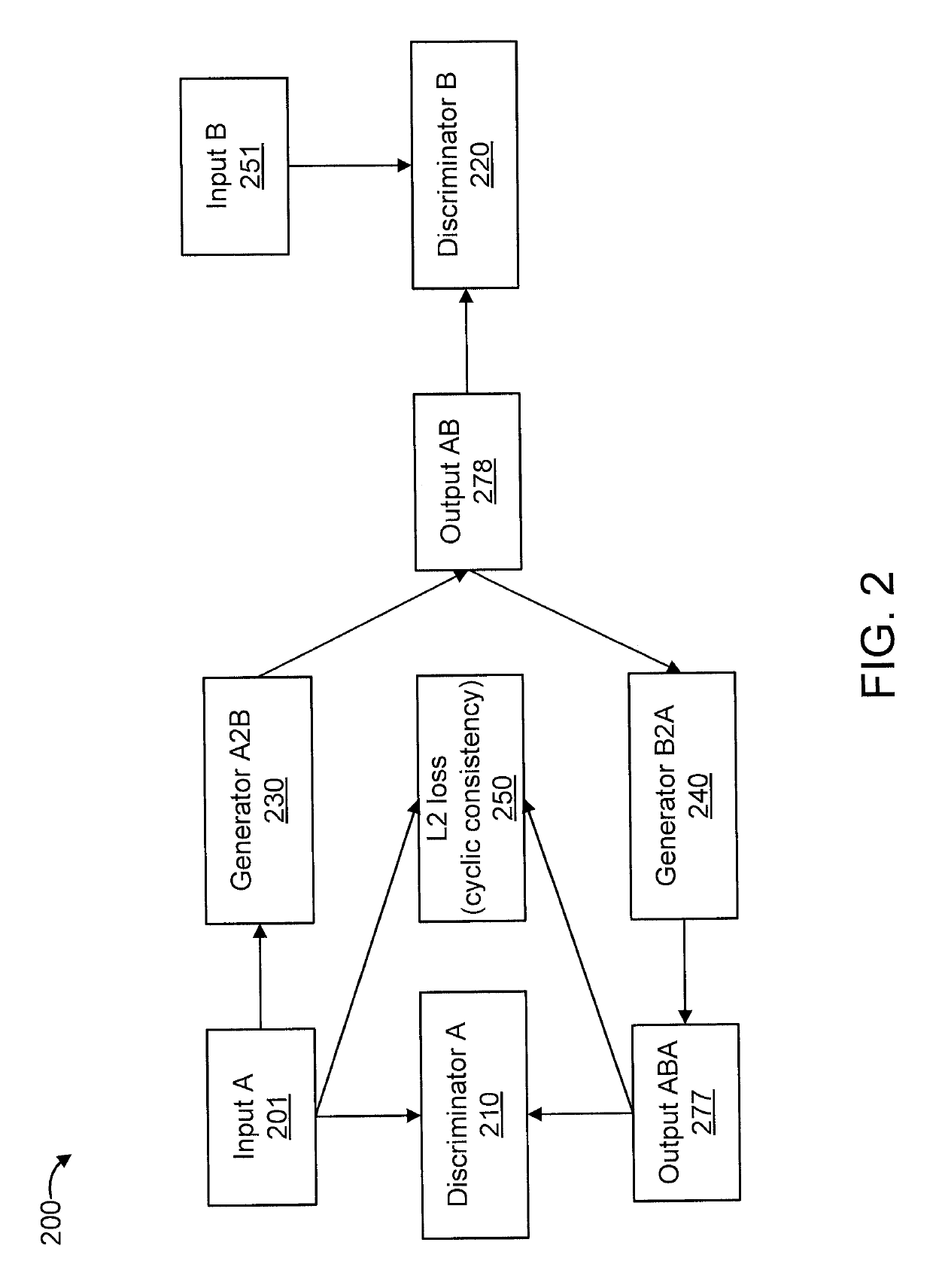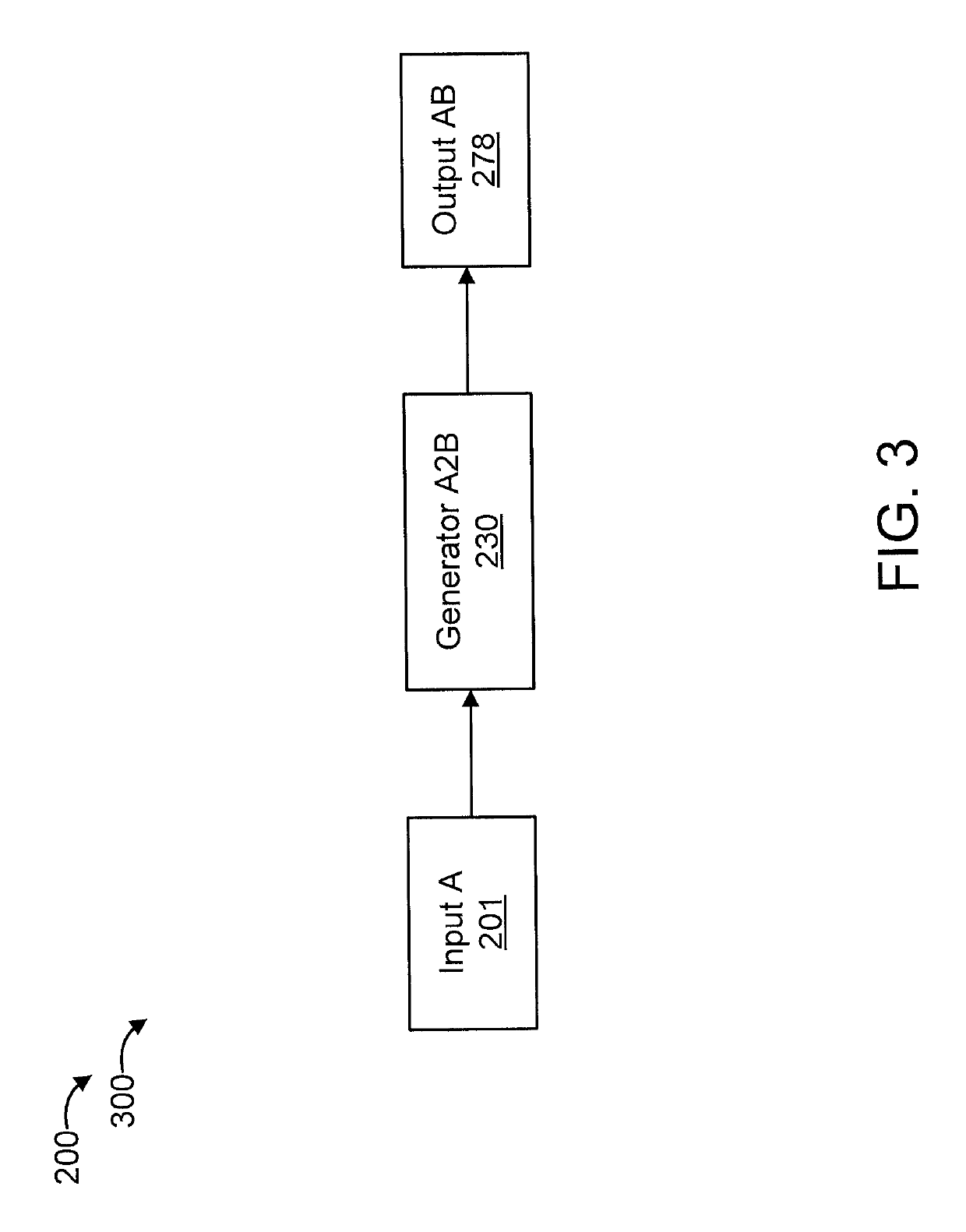Cyclic generative adversarial network for unsupervised cross-domain image generation
an adversarial network and cross-domain image technology, applied in the field of image recognition, can solve the problems of inability to provide paired training data of corresponding images from the two domains, inability to generate quality images generated by the image generator, etc., and achieve the effect of improving the quality of synthetic images and increasing the error rate of the discriminative network
- Summary
- Abstract
- Description
- Claims
- Application Information
AI Technical Summary
Benefits of technology
Problems solved by technology
Method used
Image
Examples
Embodiment Construction
[0013]The present invention is directed to a cyclic generative adversarial network for unsupervised cross-domain image generation.
[0014]In an embodiment, a cyclic generative adversarial network is proposed that takes images from a source domain to generate images in a different target domain and then back to the source domain, without having any corresponding pairs of images in the source and target domains. This is used for image recognition applications such as object detection and semantic segmentation, with labels available in the source domain, but no labels in the target domain, whereby the generated images become available as training data with labels preserved across the source and target domains while the image properties change.
[0015]In an embodiment, the present invention provides an image generation algorithm that can transfer an image in one domain to another domain. For example, the domain transfer can involve, but is not limited to, for example, generating realistic i...
PUM
 Login to View More
Login to View More Abstract
Description
Claims
Application Information
 Login to View More
Login to View More - R&D
- Intellectual Property
- Life Sciences
- Materials
- Tech Scout
- Unparalleled Data Quality
- Higher Quality Content
- 60% Fewer Hallucinations
Browse by: Latest US Patents, China's latest patents, Technical Efficacy Thesaurus, Application Domain, Technology Topic, Popular Technical Reports.
© 2025 PatSnap. All rights reserved.Legal|Privacy policy|Modern Slavery Act Transparency Statement|Sitemap|About US| Contact US: help@patsnap.com



